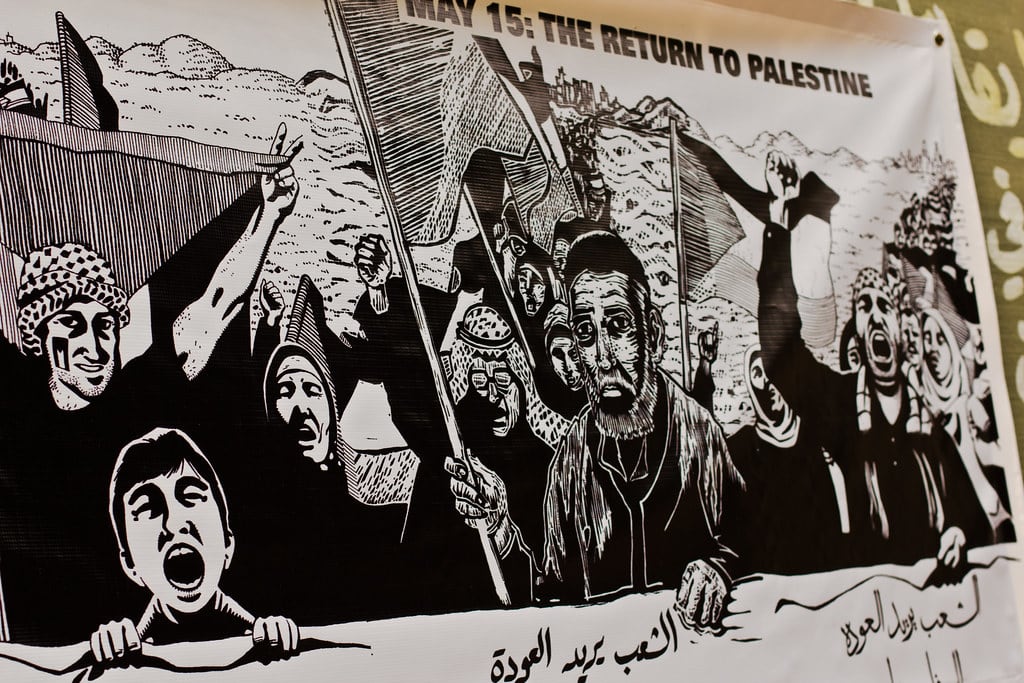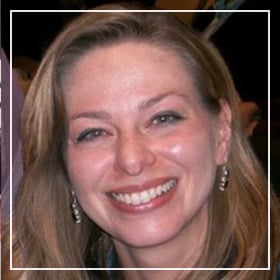As anthropologists, scholars, and teachers, now is our moment to act. It has always been our responsibility, as academics and citizens, to defend and promote the spaces for critical thinking, dissent, and open debate, for free expression and academic freedom. But what rides on our collective efforts now, in this moment, is even more urgent, more essential, more existential.
We, alongside Palestinians, alongside Israelis and others in the SWANA region, alongside everyone else: we are on the edge of an abyss. We can all see into its dark heart, where fascism percolates and ethnic cleansing against Palestinians is under way. Israel’s decision to respond to Hamas with vengeful brutality against Gaza’s Palestinians has sparked a wave of lockstep, blue and white flag-waving support from western governments and large parts of their societies. This warmongering has made our responsibilities as intellectuals more acute. All of us are dangling over the edge of this abyss. Together, although as is painfully clear, not equally so.
When universities ban rallies in solidarity with Palestinians and forbid critical speech about Israel, they facilitate fascism in our own countries. The fight against repression was already getting harder globally, as extreme Right-wing governments and societies smothered pluralism and reduced the possibility of even claiming democratic rights, let alone enjoying them. The space that we ceded to these fascistic forces is now filled with people motivated to harass, intimidate, silence, exterminate, and expel Palestinians—those Palestinians in historic Palestine and those living as the descendants of refugees globally. While Palestinians face the greatest threat —both within and beyond the SWANA region—those calling for their protection and liberation are also harassed, intimidated, silenced, and arrested. The repression of Palestinian rights activism and anti-Palestinian racism are spreading with the institutionalized support of governments and higher education institutions in the US, France, the UK, Germany, and Austria. Those targeted include people who are part of our professional organizations and universities, Palestinian students and scholars, and those who work on Israel and Palestine. In this climate of rising fascism, we cannot be silent.
We must speak out to defend the space to come together with others who oppose Israel’s war and western governments’ support of it.
The reciprocity and duties that come with professional community is not the main reason to speak out. Neither is the fragility of our own positions and freedoms. We must speak out to defend the space to come together with others who oppose Israel’s war and western governments’ support of it. Defense of the space to speak out is, in and of itself, a reason to do so.
Now is our time to come together to insist on the right to dissent and to contribute, loudly, to critical public discourse. Now, when it is even more difficult, when we risk professional troubles, and our children risk social pressures, and as we wonder what federal agent is spying on our demonstration and what counter terrorism police might come knocking.
This is urgent. Israel is carrying out war crimes by bombing civilians and hospitals, and collectively punishing the Gaza Strip by cutting off electricity, water, and food, and blocking aid from entering. Israel is preparing the military ground for a genocidal assault, while the language of Israeli and US leaders is preparing the psychological ground, by dehumanizing Palestinians and defining all of the Gaza Strip as a legitimate target. International legal scholars are calling it a textbook case of genocide and ethnic cleansing. This is urgent.
As of 23 October, more than 5,000 Palestinians have been killed in this assault on the Gaza Strip so far, including at least 2,000 children, and more than a million people ordered to leave their homes and walk under the 6,000-plus bombs to Southern Gaza, which has no resources to house them. In the West Bank, settlers and soldiers take a free hand to commit their own atrocities, with tens of Palestinians killed—including children—and more than 1,100 injured. The atmosphere of censorship and repression stifles any and all criticism. We must speak out despite it, and to spite those who would benefit from our muteness and passivity. As governments, politicians, university administrators, school directors, sororities, social media gatekeepers, and the mainstream media silence critical voices and prohibit demonstrations against Israel’s actions, we must refuse to be cowed. This is our time to stand up, together with others, and find ways to clear the smog of propaganda and intimidation. Historians of fascism have much to teach us about the disastrous complicity of the silent majority.
This is the time to write to university and school leaders and media outlets to demand that they cease being purveyors of Israeli propaganda and recognize the truth of ethnic cleansing and settler-colonial violence. Now is our time to stand up for and with those whose voices are being silenced because of their national background, religion, or political stance. To join the growing public protests that are demanding a halt to the vengeful violence that Israel is perpetrating against Palestinians in the Gaza Strip, in the West Bank and Jerusalem, in the gaols where political prisoners are being deprived of water and electricity, and in the Israeli universities where Palestinian students are being purged.
The history of our present starts much earlier, shaped by the West’s rejection of Palestinian demands for a democratic state of Palestine that would equally protect its Jewish, Christian, and Muslim citizens.
As scholars and teachers, we have no excuse. We have the skills and resources to dismantle racist tropes of good and evil and convey the complexity of a regional history that did not begin on 7 October 2023, but led to Hamas’s breach of the siege on Gaza and killing of unarmed Israelis and others. Nor did this history start with Israel’s repeated pummelling of the Gaza Strip that has killed thousands of Palestinian civilians, including women and children—the always most obvious but incomplete red line of unacceptable violence. Nor did this history start with Israel’s 2007 blockade of the Gaza Strip. The history of our present starts much earlier, shaped by the West’s rejection of Palestinian demands for a democratic state of Palestine that would equally protect its Jewish, Christian, and Muslim citizens. It was shaped by Europe’s decision to absolve itself of responsibility for the Holocaust by supporting the Zionist settler-colonial takeover of the Arab-majority land of Palestine. Now is our time to assert the facts of this history for wide audiences.
There are those who would say that this is not the moment to assert the academic freedom to speak truth to power. That any call for academic freedom and the demand to exercise it now would be poorly timed, because the priority is to avert the immediate threats to people beyond the sheltering halls of academe. There are those who would insist that the protection of civil rights in the West is an incorrect focus when historic Palestine is the land of struggle. That the voices of those facing ethnic cleansing must be centered. And indeed, our priority should be to foreground the diverse viewpoints and goals of Palestinians on every platform. But what is going on now is, in outrageously uneven ways, happening to us all. As the Birzeit University Union of Professors and Employees proclaimed in a breathtakingly eloquent call from Occupied Palestine: “We are all Palestinians now.” Recognizing that from an expansive place is the meaning of solidarity. As scholars and teachers, we know well that our words and our pens are not equal to the violence of armies. But they are what we have just now, and we must use them.
For a few things you can do:
Educate yourself: https://merip.org/palestine-israel-primer/
Read the citations linked in this essay.
Donate to the organizations that are working to protect the right to stand for justice, read their reports about the repression of students, faculty, and others:
https://palestinelegal.org/donate
https://elsc.support/donate
Donate to people working to save lives in Palestine:
https://www.map.org.uk/donate/donation-details/484
https://www.unrwausa.org/donate
https://www.1for3.org/donate
In the UK, email your MP:
https://www.map.org.uk/campaigns/protect-palestinians-against-atrocities-in-gaza
In the US, contact your representatives:
https://www.jewishvoiceforpeace.org/take-action/
Use exemplary faculty letters to university administrations:
Northwestern University: https://dailynorthwestern.com/2023/10/16/lateststories/lte-open-letter-on-nu-leaders-responses-to-war-in-palestine-and-israel/?fbclid=IwAR1mOrcaj1oLg15kY5SPdwpEN0GuYsFAAy2e9UBtBeowPBZXJAul4rQ36OsC
Read wise people:
https://mondoweiss.net/2023/10/birzeit-university-union-we-are-all-palestinians-in-the-face-of-colonial-fascism/
https://jewishcurrents.org/we-cannot-cross-until-we-carry-each-other
Join your union.
Join the Boycott, Sanctions, and Divestment (BDS) movement
https://bdsmovement.net/pacbi
Undertake actions suggested by Jewish Voice for Peace:
https://www.jewishvoiceforpeace.org/resource-type/action-alerts/
Support independent journalism, support those in Students for Justice in Palestine groups on your campus; write to your mainstream media sources when they frame the situation in so narrow a way as to be propaganda; demand they interview Palestinians, too; reach out to your colleagues working on the Middle East and ask how you can help.





